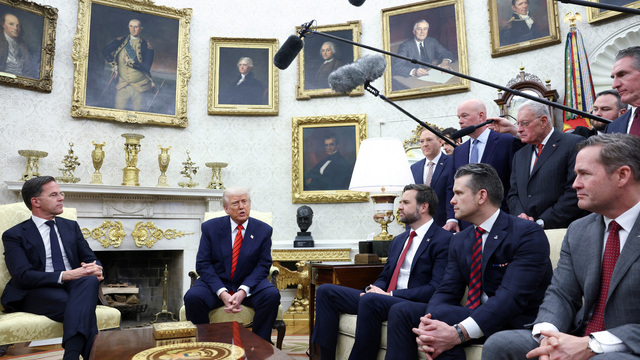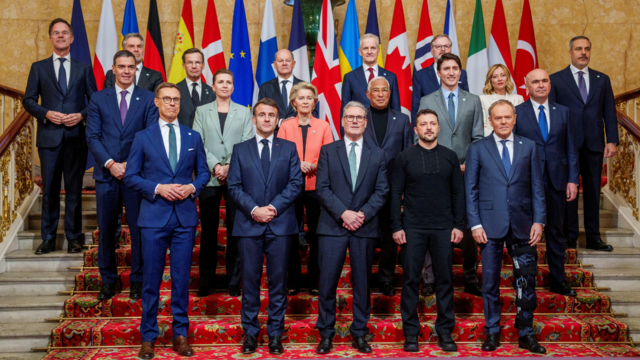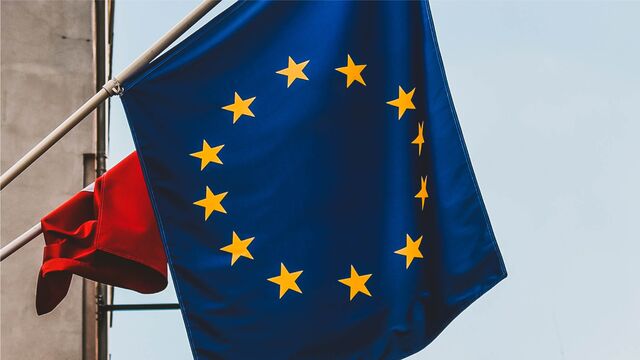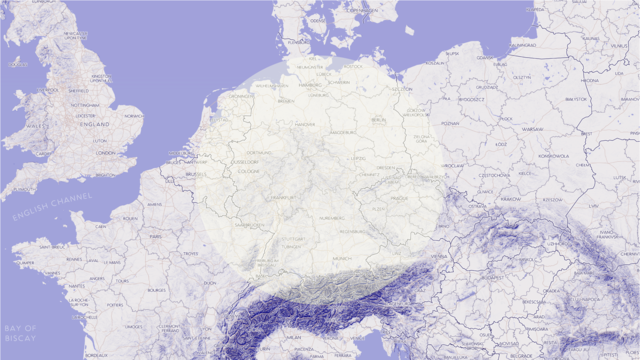Czech-German Relations: A Dialogue in Place of Strategy, in Hope of Strategy and in Need of Strategy

paper
"The Czech-German Strategic Dialogue has been hailed as a significant upgrading of relations between the two countries. However, while it holds great potential, the dialogue mainly covers practical or tactical cooperation and is currently lacking in real strategic content. This deficit reflects a wider lack of strategic convergence between the partners and requires political, rather than bureaucratic action to address it. Doing so will require a larger shift in foreign policy thinking and action, particularly on the Czech side," writes Benjamin Tallis in his newest policy paper.
The Czech-German Strategic Dialogue: New Hope or Paper Tiger?
The Czech-German Strategic Dialogue (CGSD), signed in 2015, is the first contractual document governing relations between the two countries that claims to be strategic in nature. It is, currently, unique (although there are plans on the German side to replicate it) and is the second-highest level of relations that Germany has with another state, behind only the Government-Government relations it has with France. However, while the CGSD certainly represents a declarative upgrading of Czech-German relations, there are serious questions as to whether it can actually deliver on the strategic level. Differences in foreign policy vision, imbalanced expectations and other asymmetries have hindered the dialogue from the outset and could prevent it from fulfilling its potential in future. Some observers also see a lack of political commitment or even a void in Czech strategic and foreign policy thinking that will continue to prevent the development of a truly strategic relationship between the two countries. Nonetheless, many observers and participants are willing to give the new format the benefit of the doubt as a politics of possibility – a clever device to allow a strategic dimension to emerge over time, while providing a platform to protect the relationship in turbulent times. They point to the inclusion of migration as a topic in the CGSD, despite serious divergence in the two countries’ approaches to this issue, as evidence of the dialogue’s value. Alternatively, this may indicate that, in the absence of greater possibilities for genuinely strategic cooperation, for the time being at least, the dialogue itself is the strategy. In light of these competing interpretations, this policy paper briefly examines and evaluates the ‘strategic-ness’ of the dialogue as it stands and, recognising that it is still in its infancy, discusses its future prospects.1 It concludes that while the bureaucratic and expert-level cooperation which have underpinned the dialogue thus far are strong and mutually beneficial, they are not sufficient to foster a genuinely strategic relationship. Of the two partners, the Czech side would benefit more from a real strategic relationship and so bears the greater responsibility for driving the process forward. To do so, however, will require a greater political commitment to implementing foreign policy strategy in practice.
How Strategic is the Czech-German Strategic Dialogue
In assessing the strategic-ness of the CGSD, this paper draws upon the framework for evaluating strategic relations that was outlined in a previous report.2 This framework identifies five key elements or principles of strategic partnerships: (1) Common Purpose; (2) Reciprocity; (3) Comprehensiveness; (4) Contextual Coherence; (5) Domestic Consensus. Common Purpose: Common Tactics but No Common Strategic Vision Experts and participants in the dialogue agreed that the clear, stated aim of both parties to the CGSD is to upgrade their relations to the strategic level in order to invest in the relationship itself. The intention is to capitalise on good practical cooperation in a number of fields and thus to identify where potential strategic-level opportunities exist. This approach of seeking ‘strategy from below’ and treating the relationship as if it were strategic could be lauded for its pragmatism in the absence of any larger guiding vision for the relations between the two countries.
However, it also reflects the lack of political substance – or real agreement on big issues – that would endow the dialogue with authentic strategic purpose and potential. Indeed, the relationship in general seems to lack genuine commitment to a common ‘systems principle’ that goes beyond the bilateral relationship itself, grounded in common values and interests or a genuinely shared vision for regional or global affairs. This was recently illustrated in the contrasting reactions to US President Trump’s recent Executive Order on Immigration of Chancellor Angela Merkel (condemnation), Czech President Zeman (endorsement) and Prime Minister Sobotka (complaining only that other states should have been informed in advance). Thus, while there may be common tactical purpose in the dialogue there is not, yet, common strategic purpose in practice, despite both sides’ commitments, in principle, to both the EU and NATO. The dialogue could foster such common strategic purpose in practice but it cannot do so without greater political commitment to complementary European and foreign policies more widely.
Reciprocity: Asymmetries of Benefit and Desire
There are clear asymmetries in the relationship between Germany and the Czech Republic – most obviously with regard to economic size and geopolitical clout but they are not necessarily impediments to the development of strategic relations. More problematically the relationship is characterised by an ‘asymmetry of desire.’ The Czech side is looking for ‘a special relationship’ with Germany but has little vision for how this might look in strategic terms, particularly concerning how they might contribute to German priorities beyond the bilateral. The German side is looking not for a special, but a normal European partner that could be counted upon for candid but constructive criticism but also, more importantly, could be trusted to contribute to rather than undermine the EU. It is testament to how worried Berlin is about some member states, particularly Hungary and Poland, that it has consented and, later, committed to a special new class of relations merely in the hope of securing normality in its relations with the Czech Republic. Given that another widely recognised asymmetry – of benefit from closer relations and potential strategic relations – is heavily weighted in Czech favour, the incentive should be clear for the Czech side to show how they can contribute to the ‘big questions’ of German politics, particularly on foreign and EU policy. At present, however, there seems to be little of real substance that Czechia can be counted on for as a partner in this regard. Again, the CGSD could be a transformative tool in this regard, but the transmission mechanism from quotidian, practical cooperation to shared strategic vision is uncertain and is unlikely to bear fruit without greater political vision and the commitment to implementing it on the Czech side. To be clear, this would not entail subservience but, rather, becoming a constructive contributor to the EU, to avoid perceptions of being merely a ‘taker’, an unreliable partner or occasional trouble maker.
Comprehensiveness: Broad, But Not (Yet) Strategic
The CGSD scores highly on comprehensiveness, which indicates the broadness of potentially shared objectives and common purpose, at least at the practical level. Its working groups range from Foreign and European policy to Culture, Language and Youth, Science and Research, Transport, Health and Safety, Energy, Climate and Environment, Security and Defence, Justice and Home Affairs and Agriculture. The inclusion of issues relating to the migration crisis despite the divergence of Czech and German policy in this area is heralded by both sides as proof of the value of the dialogue in providing a forum to deal with difficult and contentious issues. Ostensibly at least, this indicates the value of formalising strategic relations, although its efficacy in contributing to an effective and ethical European policy on migration remains to be seen. The comprehensiveness of the dialogue is a function of its origins in bureaucratic and practical cooperation between the two countries, with each ministry able to suggest areas that should be elevated to the strategic level. Both sides agree that there is a danger of diluting the CGSD’s strategic ambition by too comprehensively covering issues that have little potential to become genuinely strategic. While the forthcoming review (in 2017) of the scope of the dialogue is likely to trim some of these areas, the dialogue remains a format that could allow the strategic to arise from the practical, rather than imposing it from above. Nonetheless, while a streamlined dialogue is unlikely to lack substantive content, it is unlikely to have real strategic substance. Given the issues raised above (lack of common purpose, asymmetric desire and benefit), bureaucratic entrepreneurship alone will be insufficient to elevate the dialogue from practical and expert cooperation to the genuinely strategic level – for this, political leadership is required.
Contextual Coherence: Time to Choose
Contextual coherence should not be problematic for the CGSD, given Germany’s increasingly influential role in the key organisations of which both countries are members – the EU and NATO. However, the positive potential that this common membership provides is limited as long as Czechia lacks a clear, positive vision of the future of the EU and NATO and how it can contribute to this in practice. The two countries share other compatible strategic relations – with e.g. Poland, the United States, Israel, South Korea and China. The latter could present an opportunity to join forces to increase the transformative power of their relationships with China on issues of human rights and democracy, although it is not clear that this is a priority. On the Czech side, the vacuum created by the retreat from previously explicit commitments to human rights has yet to be filled with any comparably liberal, values-based foreign policy and practice. Beyond relations with China, this vacuum is potentially worrying for Germany because of responses to the migration crisis, the more general ‘illiberal turn’ and rising Euroscepticism in the Visegrad Group (V4), of which the Czech Republic is a member. Berlin sees value in having closer relations with Czechia as the ‘most reasonable’ of the V4, capable of playing a bridging and moderating role. However, continued V4 membership may not only end up tarring Czechia’s reputation as a liberal actor, pro-European actor, but also reducing the country to a tactical rather than a strategic partner for Germany. If the illiberal turn persists and there is no clear development of a distinguishing liberal Czech foreign and European policy, V4 membership may become mutually exclusive with a strategic relationship with Germany. The Czech Republic therefore needs to make some serious choices about where its future lies – and how it looks.
Domestic Consensus: A Dangerous Deficit on the Czech Side
While there is general consensus in Czechia about the strategic importance of the country’s relations with Germany, and the CGSD gives it superficially strategic form, there is little consensus about how to give the relationship real strategic substance. There is no harmonious view of how to integrate the relationship into the wider scheme of Czech foreign policy priorities – and there is little common ground as to the type of identity as a foreign and domestic actor that the Czech Republic should (seek to) enact and become. While the bureaucratic nature of the CGSD may safeguard a relationship with Germany, it is unlikely to compensate in the long run for this lack of political consensus, which will remain a significant obstacle to the development of a genuine and sustainable strategic relationship. Many experts argue that there is a wider strategic deficit in Czech foreign policy which is, to a significant degree, born of the low profile and lack of interest in foreign policy among the political class but also among the general population. This apathy represents perhaps the biggest challenge to the formulation of coherent and strategic foreign policy in general, but also to making the CGSD truly strategic. Such a situation is remarkable given the history – and geography – of the Czech lands, which have shown that even if Czechs are not interested in international politics, international politics have a tendency to be interested in them.
Hopes and Degraded Strategic Expectations
Despite the political and bureaucratic enterprise that was shown to initiate the dialogue (particularly on the Czech side), the largely pragmatic focus of its implementation so far, as well as the lack of key elements of strategic confluence mean that it is, for the time being at least, a dialogue in place of strategy. Given the aforementioned asymmetries between the countries, and the obvious benefits to the Czechs of closer ties with Germany, the onus is firmly on the Czech side to show why the dialogue matters and how it can deliver at the strategic level for the Germans. This has not yet been apparent in clear, positive terms, reflecting what many in the Czech foreign policy community see as a more general strategic deficit in Prague. While those who established the CGSD should be commended for making the best of a bad situation, but it should still be recognised as a bad situation that itself needs to be addressed. The dialogue is conducted in the hope of strategy emerging from intensified practical cooperation and this performative notion of strategy has yielded some positive results, such as the discussion on migration, and new initiatives with the potential for long-term benefit, including the eagerly-awaited ‘Czech-German Spring’ cultural programme for 2017. However, such initiatives are unlikely to address the Czech strategic deficit in the medium or long-term. Nor, can the discussion on migration be considered strategic without yielding broader concrete and positive results – at the moment it seems more like damage limitation. Nonetheless, it is clear that Berlin does value the dialogue, which is now an accepted part of the practice of Czech-German relations and is, according to senior officials, often referred to, asked after and reported on. So much so that Berlin is considering replicating this form of relationship with other countries, which unless the Czech Republic can first make its relations with Germany genuinely ‘special’ may be a cause for concern more than celebration. In discussions with the German side, a negative and defensive vision of strategy emerged. Instead of seeking support for delivering a positive vision of the EU’s future, German actors seemed to focus on preventing European disintegration and the collapse of the rules-based ‘liberal’ international order. In this sense then the CGSD makes more sense in strategic terms, as well as providing a model for German relations with other countries, as strategic damage limitation mechanism and an effort to continue to bind Germany together with its neighbours and with other mid-sized EU member states.
Such an uninspiring, defensive and minimal vision is unlikely to be sufficient to preserve the EU’s existence in the medium term. While both partners would lose from the collapse of the EU, Czechia – smaller, less wealthy and less globally or regionally influential – would lose more. A positive and genuinely strategic CGSD would be one way to help guard against such a collapse. However, if the dialogue is to fulfil its positive potential, the Czech side needs to formulate and implement a coherent foreign policy vision that transcends its domestic political divisions, in the process developing a clear foreign policy identity, that complements (but need not imitate) Germany’s. The clearest way to do this would be to become a more constructive, committed and contributory EU and NATO member. Until such time as that happens, the Czech-German Strategic Dialogue – like Czech foreign policy more widely – will remain in need of strategy.
Key Recommendations
• For the Czech side: to identify the ‘big questions of German foreign policy’ and develop more productive and feasible Czech contributions to answering them. A reciprocal exercise should also be conducted on the German side. This could be undertaken in Working Group 1 on Foreign and European Policy.
• For both partners: To consider keeping only these ‘genuinely strategic’ issues as part of an ongoing Czech-German Strategic Dialogue, while moving other practical issues of cooperation to a separate format – e.g. ‘The Czech-German Partnership’. This would mitigate the reputation (and therefore sustainability) risk that being insufficiently strategic poses for the CGSD.
• For the Czech MFA and Office of the Government: To begin to address the lack of positive Czech identity in foreign policy and as an EU member by identifying areas of both values and interest based politics – ideally combining the two – where the Czech Republic can show leadership at the European level. These policy areas should be selected to enhance the country’s capacity and ability to develop common purpose and reciprocity in its strategic relations including with Germany, its key partner. Recent initiatives on European defence and European social policy are a good start which can be built on but also followed through in practice.
• For the Czech political and foreign policy community: To move from being a passive to an active defender of the EU – the flourishing of which is central to the upholding of Czech values and the pursuit of Czech interests, as well as aligning strategic priorities with Germany – and to mount a full-scale publicity campaign in this regard. This will take on additional significance in the context of the Czech Republic becoming a net-contributor to the EU which will require a significant public diplomacy investment to show the benefits of membership beyond transfer payments.
• For all concerned parties on the Czech side: To use this publicity effort – and the campaign for Czech leadership – to spark a wider public, political and intra-partisan debate on Czech foreign policy vision involving a broad spectrum of political parties, societal stakeholder groups and communities around the country. This would not only raise the profile of foreign policy issues but would also help to identify key areas of dissonance, resonance and even domestic consensus that could clarify and underpin future strategy.
• For the Czech government: To seriously consider the compatibility of Czech strategic relations in the V4 – but also with e.g. Azerbaijan – with the aspiration to strategic relations with Germany in the context of a liberal EU of the type that Germany seeks to preserve.
Dr Benjamin Tallis is Senior Researcher at the Centre for European Security of the Institute of International Relations Prague. He is the Editor-in-Chief of New Perspectives: Interdisciplinary Journal of Central & East European Politics and International Relations. E-mail: tallis@iir.cz








